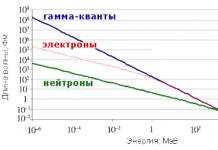How long should you keep utility bills?
If you still pay utility bills at a post office or bank branch, then the question of how long you should keep payment receipts may be relevant to you. Receipts for payment of utility services are proof that the payer’s funds were transferred to the recipient (utility resource provider or housing and communal services management company). To avoid troubles related to payment confirmation, you should save payment documents for some time.
The storage period for housing and communal services receipts is not established at the legislative level. However, the Civil Code of the Russian Federation defines the concept of limitation of actions, that is, the period during which one can apply to the court for protection of a violated right. According to Article 196 of the Civil Code of the Russian Federation, the general limitation period for debt collection is 3 years. The beginning of the period can be considered the date the owner stops paying for utilities.
The bank or management company to which the consumer transfers payments for housing and communal services can expose the debt (for example, when funds for some reason have not been credited to the account) for the last 3 years and file a claim in court. If the payer refuses to acknowledge the debt and has all payment receipts in hand, he can file an objection to the claim, attaching the necessary checks, and ask the court to refuse collection.
In practice, lawyers strongly recommend storing payment documents for as long as possible. This is due to the fact that the expiration of the statute of limitations is not an obstacle to consideration of the claim by the court in accordance with Article 199 of the Civil Code of the Russian Federation. In other words, the right to file a claim remains after three years.
The reason for this is that during the trial the following may become clear: the statute of limitations was suspended. In cases where filing a claim was impossible due to certain circumstances that did not depend on the actions and desires of the plaintiff (for example, emergency situations: flood, earthquake, military operations, epidemics, etc.) After the termination of these circumstances, the limitation period continues to run. Thus, when suspended, the period of time during which the specified circumstances occur is not counted in the statute of limitations (Article 202 of the Civil Code of the Russian Federation); the statute of limitations was interrupted. The interruption of the period is evidenced by the debtor taking actions to recognize the debt, including partial payment of the debt for housing and communal services. In this case, the countdown of the limitation period begins anew; the statute of limitations was restored. Restoring the limitation period is possible in exceptional cases when the reason for missing the filing of an application is recognized by the court as valid due to circumstances related to the personality of the plaintiff (Article 205 of the Civil Code of the Russian Federation). These include being in hospital, a long business trip, the death of a close relative, or a helpless state of a person. The reasons for the helpless state include strong emotional excitement, the effects of hypnosis, and the effects of medications.
Having rent arrears when selling real estate
The legislation of the Russian Federation allows the sale of housing, regardless of the presence of debt for utilities. According to current regulations, rent arrears do not apply to the property, and the new owner of the property does not have to pay for them. An exception is the obligation to contribute for major repairs in an apartment building, which is transferred from the previous owner of the living space to the new one. If the previous owner of the apartment had a debt on contributions for major repairs, then the new owner will have to pay it off (Article 158 of the Housing Code of the Russian Federation)
Not every potential buyer will purchase a home if it is saddled with rent arrears. Information about the presence of debt at the apartment address can be found without the participation of the owner on the public services service, through a personal account on the website of the management company or HOA, in the mobile application for residents, using ATMs. If you know your personal account, you can clarify information about the debt at Russian Post, at a bank, at a terminal, or by calling the service provider company. You can read more about how to find out about debt for housing and communal services.
Often, when making transactions for the purchase and sale of an apartment, receipts for payment of housing and communal services may be required. They are needed to check whether there are debts on the property. If reports from a bank or management company were lost, or funds were transferred to the wrong account, then it is the payment document that will protect the rights of the owner in court or in a housing organization. In such cases, storing housing and communal services receipts can be considered a necessity.
If you pay for utilities through terminals or an online service, you should print receipts and attach them to receipts. Some receipts will fade over time, so it may be wise to make photocopies. But since the copy itself does not have legal force, it must be certified by a notary or contact the accounting department of the management company, where they will sign and seal you. You can read more about popular payment methods for utility bills
How long should you keep utility bills and what to do with them after the required storage period has expired.
What kind of receipts are we talking about?
A receipt is a document drawn up in accordance with established standards and confirming the fact of payment for services. The form of the payment document is described in Order of the Ministry of Construction and Housing and Communal Services of the Russian Federation No. 924.
The receipt describes everything in detail: there is a separate line for each resource, and the consumption rates for each utility service are given. Thanks to this, you can check whether the payment amount has been calculated correctly and control your expenses.
Despite the fact that the standards described in the Order are only approximate, in most cases the receipts look the same. This makes working with this type of document easier.
So, you paid for utilities and received a receipt. What to do next? We need to save it.
How long should I keep receipts after payment?
There is not a single law or regulation that clearly states the mandatory retention period for utility receipts. But a hint can be found in the Civil Code of the Russian Federation. It includes the concept of “statutory limitation” - this is the period during which you can sue to protect a violated right. It is equal to three years. This means that receipts must be kept for at least three years.
- Be sure to remember: you need to keep receipts drawn up in accordance with all the rules.
If you pay for services by card or online banking, make sure that receipts are attached to all other receipts.
Why know the storage periods for documents?
You need to know about the deadlines and keep receipts for payment of utility bills in order to always be able to protect your rights. For example, if you have to sue your utility provider, you will need receipts.
Let's say you kept the receipts for three years. What to do with them next?
Knowledgeable lawyers advise keeping receipts after payment for as long as possible. They say that even though there is no such law, these documents may still be useful to you three years later. Litigation between providers and consumers of utility services is not uncommon. The longer you keep the receipts, the more arguments in your favor you can attach to the case.
In addition, if we determine storage periods based on the statute of limitations, then we must know something else. If the statute of limitations expires, you can still claim protection for the violated rights. Therefore, saved receipts can not only come in handy, but also become a trump card up your sleeve.
Conclusion
- Make sure that receipts are completed according to all rules.
- Keep your utility receipts for at least three years.
- If possible, keep such documents for as long as possible.
Communal payments! There are so many problems and disputes, and even lawsuits, with them... And all because not everyone knows how long to keep receipts for payment of utility services. And why do this at all? So listen to what I have to tell you.
Receipts for payment of certain services are proof that on your part the money was transferred in favor of the bank or recipient.
In order to avoid hassles associated with confirming payment, it is recommended to keep receipts for some time.
The state does not force you to keep all payment receipts, but the Civil Code of the Russian Federation specifies the concept of a limitation period of 3 years.
This means that the bank or enterprise where you transfer money for utilities can charge you with a debt that is up to three years old if you do not provide proof of payment.
Most often this happens when there are changes in the bank system, a move, or loss of data on transfers at a banking institution.
Of course, in such situations the bank is to blame, but its employees, as a rule, try to shift the blame to the payer. In court, bank receipts will be indisputable evidence that confirms payment for certain services.
If you're planning a move, save your receipts!
 Often, when moving to a new place of residence, a bank or utility company may require documents that would confirm payment for services. Reports may get lost in the bank due to the fault of employees. In addition, the operator may send money to the wrong account. In these cases, it is the receipt that will protect your rights in court or at a utility agency.
Often, when moving to a new place of residence, a bank or utility company may require documents that would confirm payment for services. Reports may get lost in the bank due to the fault of employees. In addition, the operator may send money to the wrong account. In these cases, it is the receipt that will protect your rights in court or at a utility agency.
Statute of limitations
This period is 3 years. That is why it is recommended to keep all receipts during this period. If you want to completely protect yourself, it is recommended that you keep all receipts for payment, and also require such documents when repaying the debt.
Where is the best place to pay?
Payment Not recommended pass through: 
- Internet banks. This is not recommended, because most often there is no payment information left in your personal account. This way, you won't be able to prove that you actually paid the bill. In addition, not all bills may be due. That is, the bank may issue the wrong amount. In this case, next month you will have to pay not only the body of the debt, but also the penalty that accrued for the previous unpaid debt.
- Dubious banks with which there have already been problems with receipts.
- Terminals of various banks. This is not recommended only because not all terminals allow you to print a payment receipt.
- Non-state banking institutions. As a rule, unpleasant situations happen in such institutions.
Do I need to keep receipts for longer than 3 years?
If you don’t want unnecessary problems, it’s better to keep your receipts a little longer. In some cases, the statute of limitations may change during legal proceedings. In this case, you will have to keep documents confirming payment for much longer.
It is worth noting that in some cases, a court or banking institution begins counting the claim period not from the date of payment of utilities, but from the date of transfer of money to the recipient’s account.
Thus, to avoid possible problems, a period of 3 years is the minimum for storing receipts.
Making electronic payments
With the advent of modern technologies, paying for utilities and other services has become much easier.
It is worth noting that when making payments online, you will not always be able to confirm payment if necessary.
Since when making payments this way, you will not receive a receipt in your hands. In order to protect yourself when making electronic payments, you need to take screenshots or printouts of the transactions performed.
Many banks today offer their services in paying for utility bills, while promising reliability and convenience when making electronic payments. If you really want to pay for utility services via the Internet, choose a bank that cooperates directly with the organization that provides utility services.
Your brownie.
By what date should utility bills be paid? Find out the rent repayment deadlines. How is late payment calculated and how are penalties calculated? Payment methods, pros and cons. Retention period for utility bills.
Consumers of utility services are required to make timely payments. The procedure and deadlines for paying utility bills are determined by current laws. They contain simple and reasonable requirements. Compliance with them allows the entire complex system of generation, distribution and consumption of utility resources to operate stably.
However, some questions still arise here. For example, not everyone knows:
- when you need to pay for housing and communal services for a specific month;
- from what point does a penalty begin to accrue for late payments;
- what payment methods exist, and so on.
Erroneous interpretation of certain provisions is associated, among other things, with regular adjustments to legislation. In such a situation, clarification of the current rules will not hurt.
Deadlines for payment of utility bills
Meeting deadlines for paying utility bills is a key requirement for consumers of housing and communal services. It is enshrined in the Housing Code of the Russian Federation. In accordance with Article 155 of this regulatory document, payment must be made before the 10th of the following month. For example, services consumed for September must be paid before October 10.
If the consumer does not deposit funds within the established period for paying utility bills, he or she faces penalties. This penalty begins to work after a certain delay, which will be discussed below.
The 10th is the general statutory payment deadline, but in some cases it may be changed. For example, this happens when concluding a rental agreement. It can contain any other number.
Services you need to pay for
In different houses, depending on the level of improvement, the list of housing and communal services payable may vary significantly. This may be due to the presence of certain communications, the number of floors and the form of management of the apartment building.
Every month, residents receive receipts that indicate a list of payments, as well as the date by which utility bills must be paid. Necessary payments are divided into utility and housing payments.
Utilities include:
- cold and hot water supply;
- electricity;
- gas supply;
- heating;
- sewage drainage.
Housing services include:
- maintenance and current repairs of the house;
- removal of solid household waste;
- elevator;
- major renovation of the house (if the apartment has been privatized);
- intercom;
- home phone;
- TV antenna;
- radio;
- maintaining the activities of the management company.
Where can I pay for housing and communal services?
To make it comfortable for the maximum number of people to meet deadlines for paying utility bills, payments today can be made in different ways. The most common options include contacting a bank. For many, this method is the simplest and most accessible. All the necessary actions are performed by the operator of the banking organization; the person only has to deposit funds - in cash or by bank card.
Many banks provide payment acceptance services, and they almost always charge a certain commission for this. In some cases it is a fixed figure. In others, it is a percentage of the total amount paid.
In addition to banks, the same function of accepting funds on time to pay utility bills is performed by Russian Post branches. They also charge a commission. The exception is clients of Sberbank and Bank of Moscow - they do not pay commission. Many recipients of housing and communal services find it convenient to make the necessary payment at the same time as resolving other issues at the post office.
Payment is made upon availability of a receipt. There is only one downside to going to a bank or post office - you have to spend some time waiting in line. True, in recent years the situation has been improving. The introduction of an electronic queue system helps here. Coupons with numbers for different types of services are issued at many bank and post offices.
You can also pay off your debt by using an ATM when it is due to pay utility bills. Almost everyone has plastic cards today. When paying by card, the interest rate will be lower; in addition, using an ATM will avoid long periods of waiting in line. Payment is made according to the personal account number - it contains 10 characters.
Payment is also accepted at terminals. The advantage of this method is a large number of payment acceptance points, which allows you to pay off your debt on the way home or to work. The downside is the increased commission. It is 3-5%. The terminals only accept cash and do not give out change; overpayments are applied to the next month.
In addition, within the specified period for paying utility bills, money can be deposited:
- using a mobile phone;
- via Sberbank Online;
- on the State Services website;
- through electronic payment systems, for example, Yandex.Money, QIWI or Webmoney.
Delay and penalty
In most cases, the answer to the question of when you need to pay utilities is standard - until the 10th. This period remains unchanged from month to month. If this rule is violated, then the delay countdown begins. During the first 30 days of delay, no penalties are charged. This is a kind of “grace” period allotted to the consumer to pay off debts.
The penalty begins to be calculated from the 31st day of delay. Until the 90th day of delay, a fine is accrued daily in the amount of the total amount of debt multiplied by 1/300 of the refinancing rate of the Central Bank of the Russian Federation. From day 91, the coefficient for calculating the daily fine changes to 1/130 of the refinancing rate.
Missing the deadline for paying utility bills is fraught with not only the accrual of penalties. If the debt is not repaid for more than 3 months, then utility providers have the right to turn them off. The debtor may have his electricity, water, sewerage and other communications cut off.
Retention period for utility bills
There are no regulatory documents regulating the storage period for receipts for payment of utility services in our country. However, in this regard, we can recall such a concept as the statute of limitations. For disputes about debts for housing and communal services, it is three years. Based on this, it is recommended to save receipts for a three-year period; if necessary, they will help you defend your case and confirm the fact of payment.


























